Architects gave the humble “little free library” a makeover
A wood box, basic carpentry skills and a few used books. It doesn’t take a lot to make a lending library for book lovers in your neighborhood. Promoted by the Wisconsin-based non-profit Little Free Library, there are now over 50,000 vessels of literary generosity in 70 countries around the world.
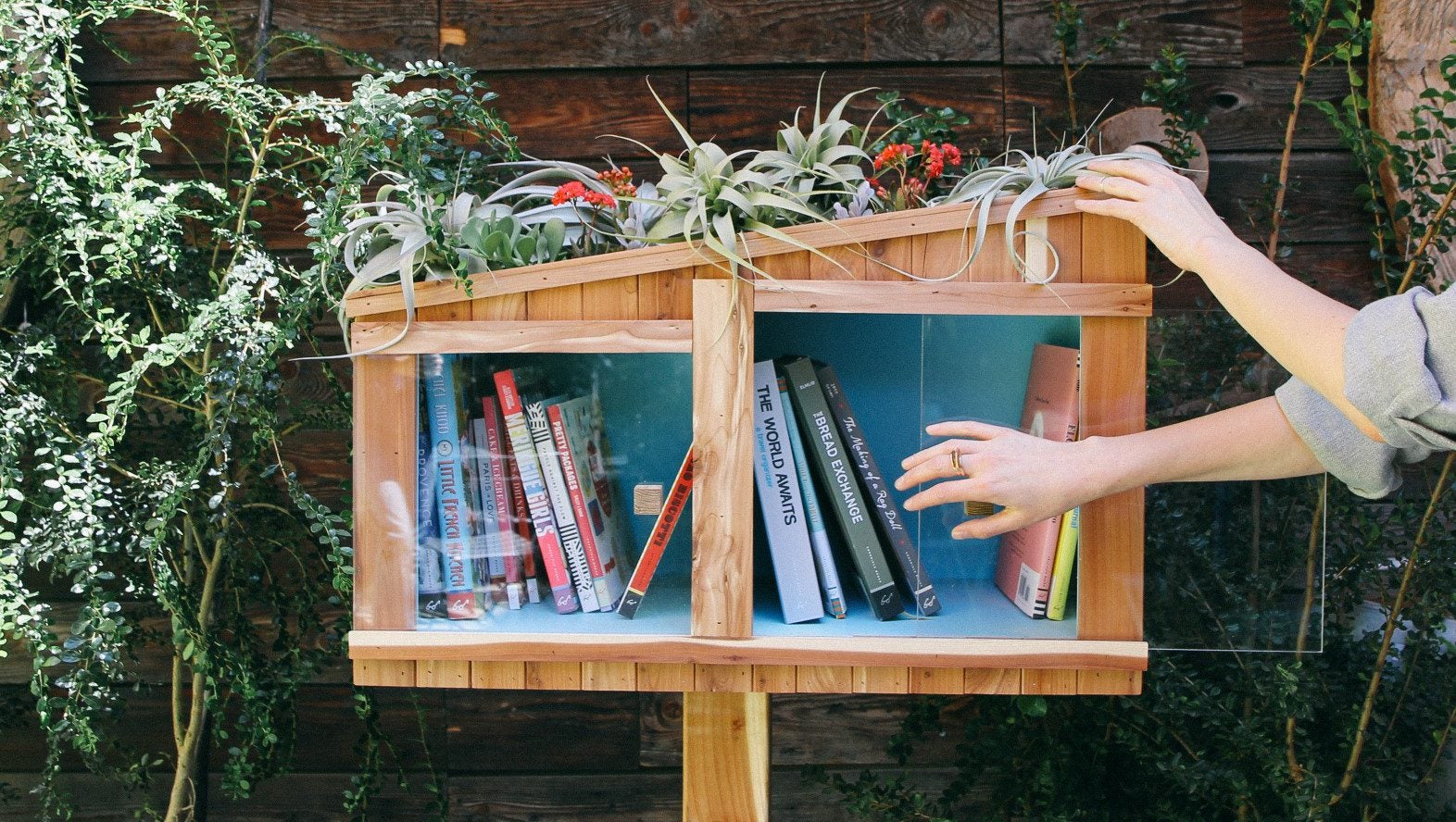

A wood box, basic carpentry skills and a few used books. It doesn’t take a lot to make a lending library for book lovers in your neighborhood. Promoted by the Wisconsin-based non-profit Little Free Library, there are now over 50,000 vessels of literary generosity in 70 countries around the world.
While there are similar book exchange forums world wide—from office book clubs and online book swap sites to the chic Used Book Café in Paris—Little Free Library set itself apart by establishing a design language that makes the pop-up libraries instantly recognizable on streets. Inspired by architectural models, Little Free Library sponsors DIY building sessions (there are several open-source “blueprints” on their website) and sells pre-made book boxes that look like miniature rustic sheds.
After thousands of crafty examples, Little Free Library noted that some models could be improved with advice from professional architects and builders. The ideal box library should be weather-proof, fit at least 25 books, and delight neighbors, including young children. The group teamed up with the American Institute of Architects-San Francisco and Chronicle Books to launch a contest to crowdsource solutions that negotiate usability and aesthetic concerns.
They got over 300 entries; here the winning prototypes:
The top prize was awarded to Polish architect Bartosz Bochynski who designed a cheery four-foot-tall, owl-shaped box, with eyes that light up at night. “Love that in the evening, with the help of the LED lights, the owl’s eyes light up as a feature. This not only attracts people, but creates safety for the tiny library,” said contest judge Renée Elaine Sazcı.
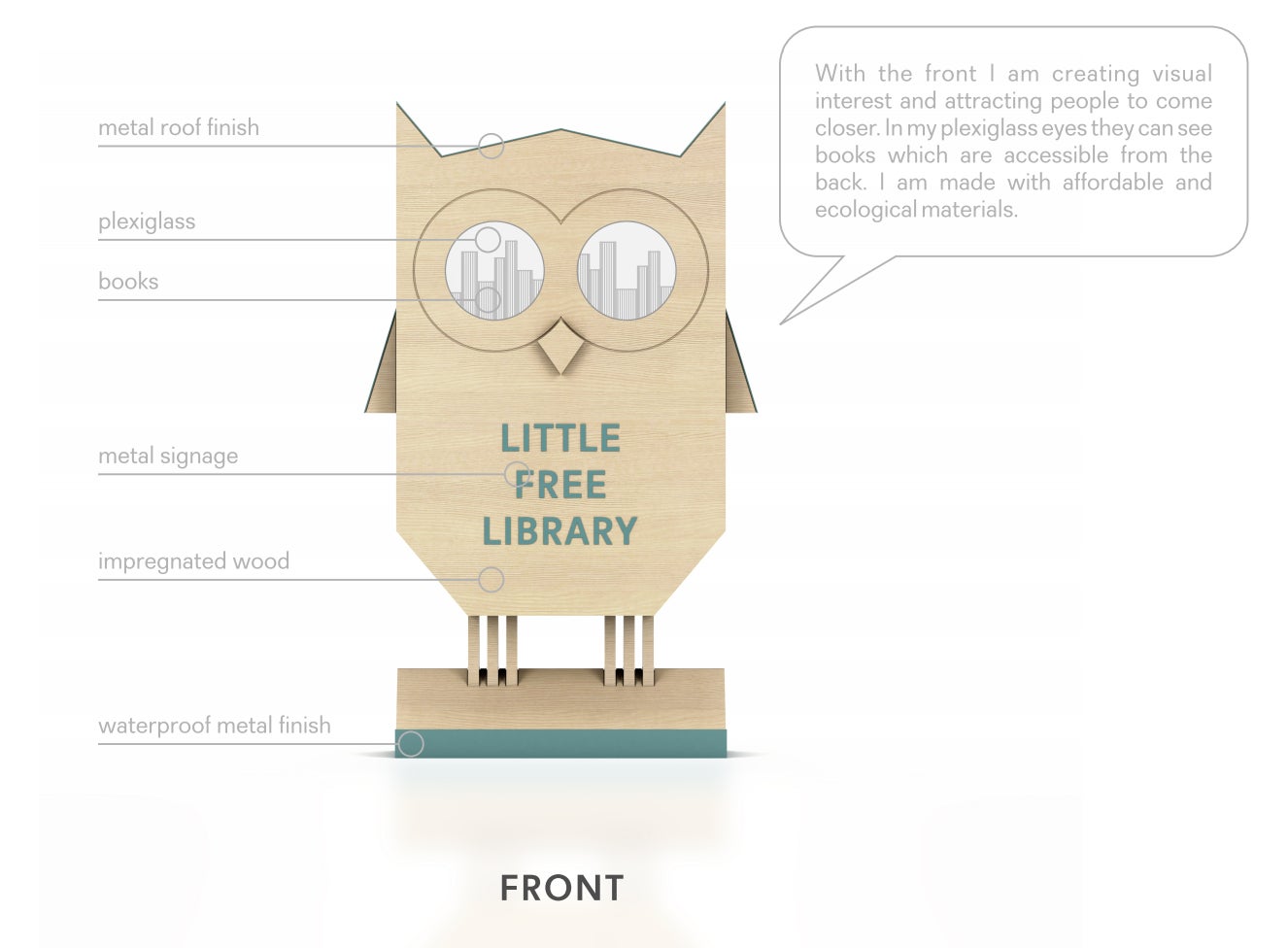
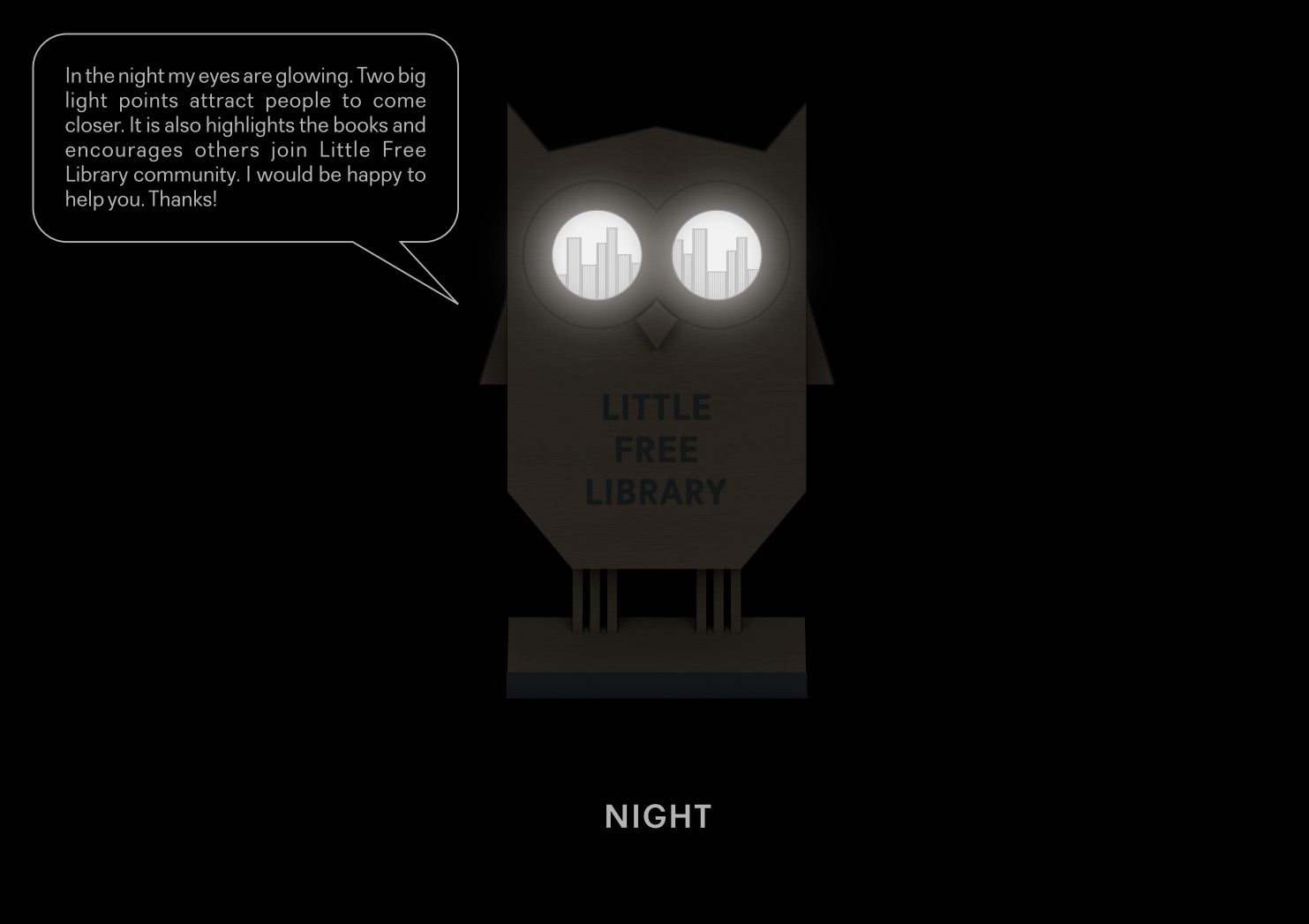
Second place went to a versatile, shelf-like structure with a nifty mechanism that makes it easy for lenders to manage their “stacks.” “The plexiglass door can turn into a makeshift sign with dry-erase markers; the library enclosure can double as a stand for a hanging flower planter or shelf of additional materials,” wrote designer Seth Thompson.
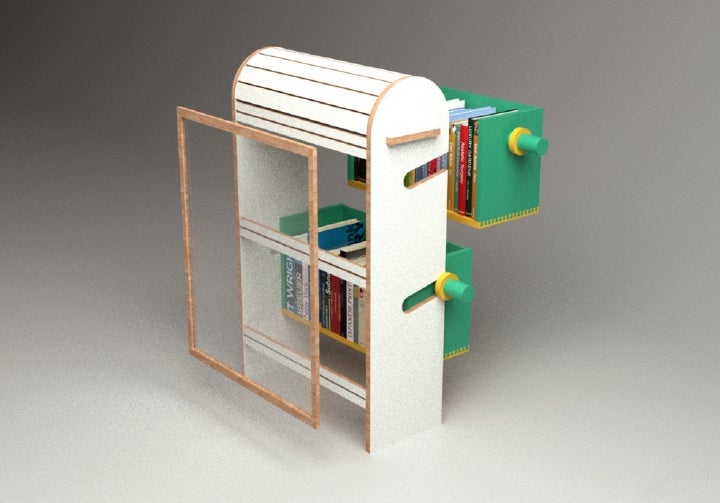
Judges praised the modernist style and cost-effectiveness of a flat-pack, kiosk-and-chair concept by architect Rachel Murdaugh. Her design won the Chronicle Book Prize for the idea best optimized for mass production.
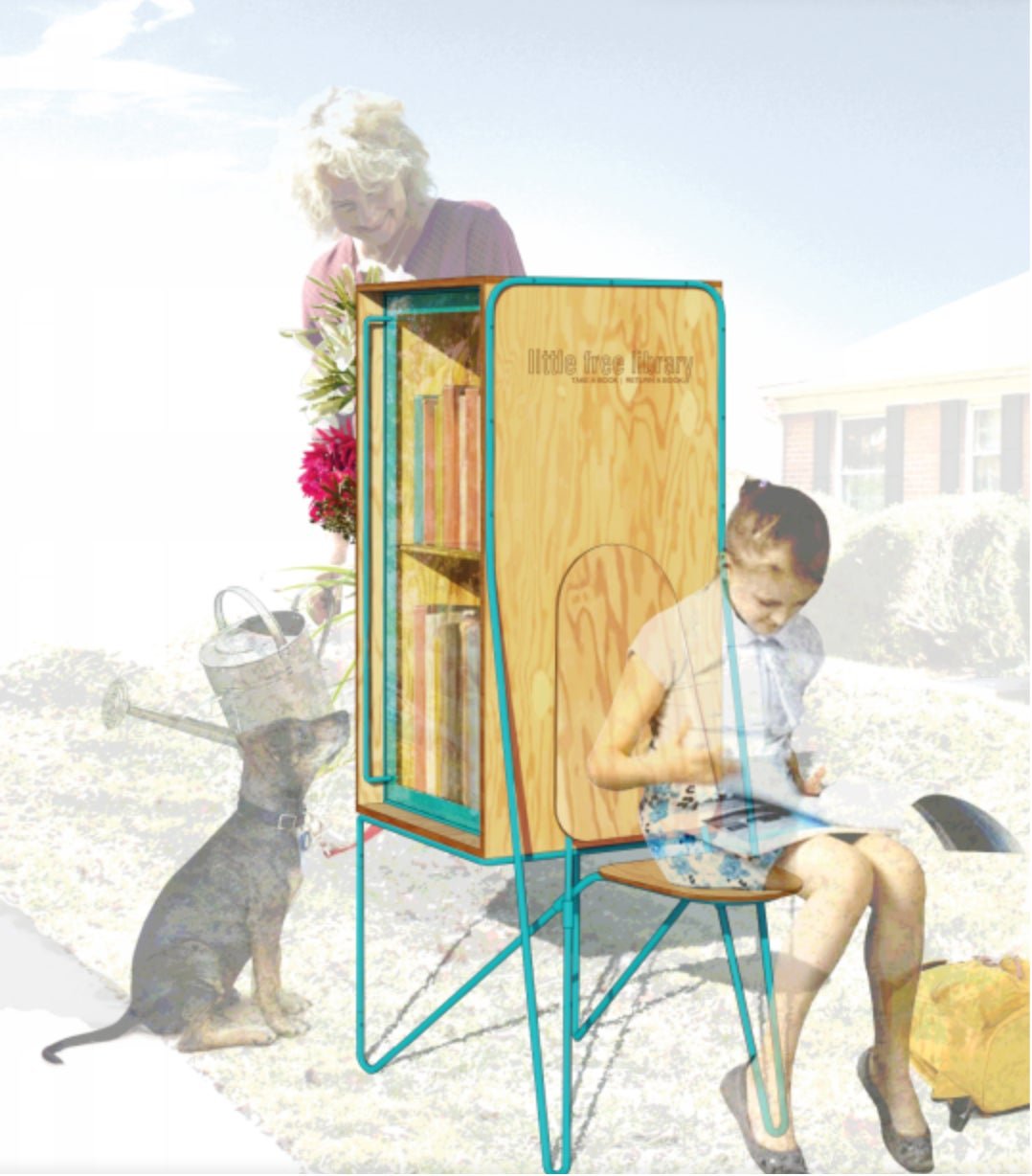
The Little Free Library staff got to pick their personal favorite, as well. They chose a playful shelf in the form of a tree trunk. Designed by Japanese architects Ryo Otsuka and Lin Zihao, the “Tree of Knowledge,” as they call it, seeks to remind readers of the source of the books’ raw material.
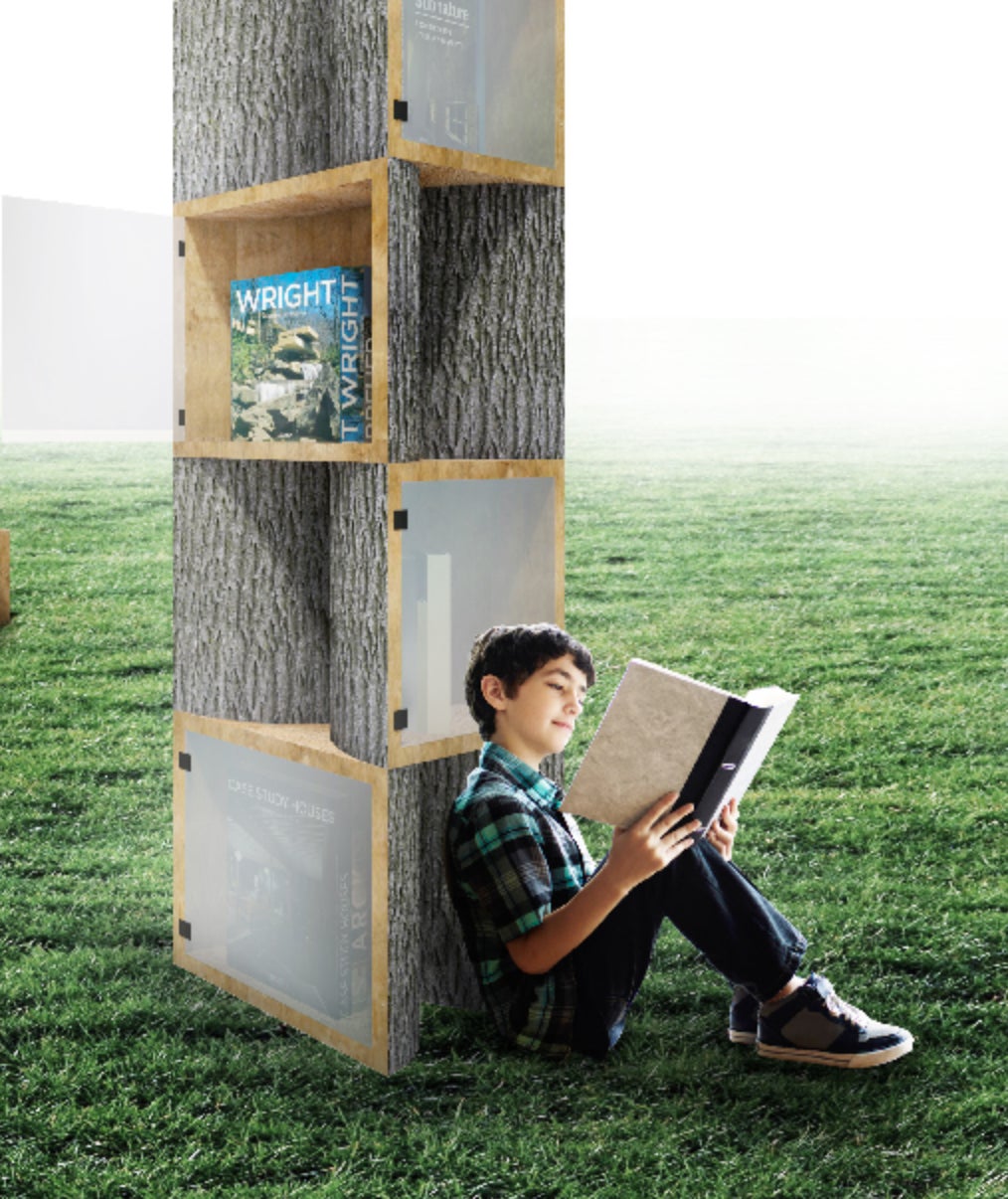
All of the winners will receive a collection of architecture books and funding to realize their dream little library.